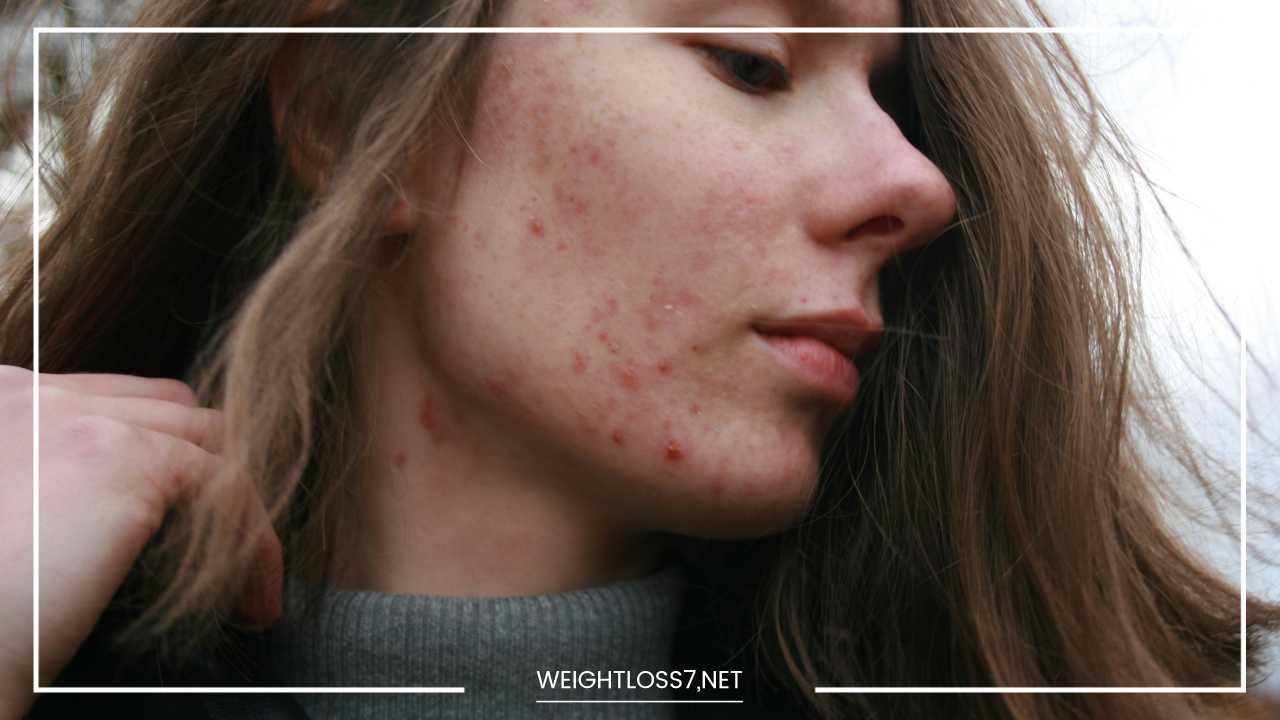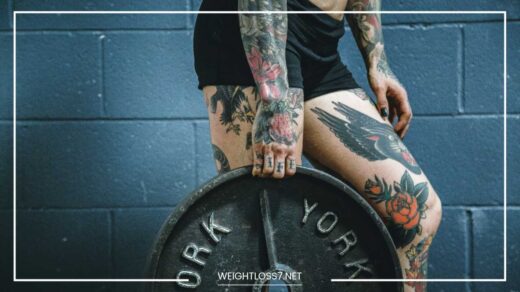Cystic Acne: Causes, Treatments & Strategies for Clear Skin

Cystic Acne
Cystic Acne: A Comprehensive Guide to Understanding, Treating, and Reclaiming Your Confidence
Cystic acne. The mere mention of it can conjure up a wave of frustration, self-consciousness, and even pain. Unlike the occasional pimple most teenagers experience, cystic acne is a deeper, more aggressive form of acne that can leave a lasting physical and emotional impact.
But here’s the empowering truth: millions of people worldwide share this experience, and there’s a wealth of knowledge and treatment options available to help you manage and conquer it.
This comprehensive guide dives deep into the world of cystic acne, exploring its causes, the emotional toll it can take, and most importantly, the various treatment strategies to reclaim your confidence and achieve clear, healthy skin.
Understanding Cystic Acne: Beyond the Surface
Cystic acne isn’t your average breakout. It forms deep within the lower layers of your skin, often developing around hair follicles.
Unlike whiteheads or blackheads, these inflamed lesions don’t have an open pore. This lack of drainage leads to a build-up of pus, causing significant inflammation, pain, and sometimes, even fever.
Unlike the fleeting nature of pimples, cystic acne lesions can linger for weeks, and their aftermath can be just as troublesome.
Post-inflammatory hyperpigmentation (dark spots) and even scarring are common consequences, adding another layer of frustration to the experience.
The Culprits Behind the Breakout: Unveiling the Causes
Cystic acne is a complex condition with several contributing factors. Here’s a breakdown of the key players:
- Hormonal Havoc: Androgen fluctuations are a major culprit, especially during puberty, menstruation, and pregnancy. These hormones stimulate oil production in the sebaceous glands, leading to clogged pores and creating a breeding ground for bacteria.
- Bacterial Blitz: Propionibacterium acnes (P. acnes), a type of bacteria that thrives in clogged pores, plays a significant role. P. acnes feeds on sebum (oil) and triggers inflammation, further exacerbating the problem.
- Genetics: A Family Affair: If cystic acne runs in your family, you’re more likely to experience it. Genetics play a role in how your skin responds to hormones and bacteria, making you more susceptible to clogged pores and inflammation.
- Diet: The Food Connection: While not a direct cause, certain foods may worsen symptoms for some people. Studies suggest a link between high-glycemic index (sugary) and dairy products with increased acne breakouts. However, the impact of diet on cystic acne can be highly individual, so it’s important to track your own triggers.
The Emotional Toll: More Than Skin Deep
Cystic acne’s impact goes far beyond the surface of your skin. It can significantly affect your self-esteem, confidence, and social life. Feeling self-conscious about your skin can lead to social withdrawal, anxiety, and even depression.
Imagine the constant battle – the frustration of breakouts, the pain of inflamed cysts, and the fear of scarring. Social situations become a minefield, filled with anxiety about how others perceive you. This emotional toll can be debilitating, impacting your daily life and overall well-being.
Treatment Options: Finding Your Path to Clear Skin
The good news is, cystic acne doesn’t have to control your life. Here’s a breakdown of some effective treatment options to discuss with your dermatologist:
-
Topical Warriors:
- Retinoids: The foot soldiers of topical treatment, retinoids like tretinoin unclog pores by promoting skin cell turnover and reducing inflammation. They come in various strengths and forms (creams, gels, lotions), so finding the right one for your skin is crucial.
- Benzoyl Peroxide: This powerhouse targets P. acnes bacteria, reducing their population and preventing further inflammation. However, benzoyl peroxide can be drying, so proper moisturizer use is essential.
- Azelaic Acid: A multi-tasking topical treatment, azelaic acid tackles inflammation, kills bacteria, and helps even out skin tone. This can be particularly helpful for post-inflammatory hyperpigmentation.
-
Oral Allies:
- Antibiotics: These medications combat P. acnes bacteria from the inside out. However, long-term use can lead to antibiotic resistance, so they’re typically used in combination with other treatments and for short periods.
- Hormonal Therapy: For women, hormonal imbalances can be a significant trigger. Birth control pills with specific anti-androgenic properties can help regulate hormones and reduce breakouts.
- Spironolactone: This medication acts as an aldosterone antagonist, helping to reduce the effects of androgens on the skin. It can be a good option for women with hormonal acne.
-
The Big Guns: Isotretinoin (Accutane)
This powerful medication is a game-changer for many with severe cystic acne. It works by shrinking oil glands, reducing oil production, and calming inflammation. Isotretinoin is incredibly effective, with studies showing significant improvement and even remission in a high percentage of cases. However, due to its potency, it comes with potential side effects like dry skin, lips, and eyes, and requires close monitoring by a dermatologist. Additionally, isotretinoin can cause birth defects, so strict pregnancy prevention measures are necessary for women taking this medication. -
Targeted Treatments:
- Cortisone Injections: For large, inflamed cysts, a dermatologist may inject a cortisone medication directly into the lesion. This can reduce inflammation and speed up healing, offering quick relief for particularly troublesome breakouts.
- Light Therapy: Blue light therapy has emerged as a promising treatment option for mild to moderate cystic acne. It targets P. acnes bacteria directly, killing them and reducing inflammation. While not a standalone solution, blue light therapy can be a helpful addition to your treatment regimen.
Finding the Right Regimen: A Personalized Approach
There’s no one-size-fits-all solution for cystic acne. The most effective treatment plan will depend on the severity of your acne, your skin type, and your individual triggers.
It may take some trial and error to find the combination of medications and strategies that work best for you. Here are some key tips to navigate your treatment journey:
- Be Patient: It can take weeks or even months to see improvement with any acne treatment. Stick with your regimen and be patient – consistent treatment is key to achieving clear skin.
- Develop a Gentle Skincare Routine: Cleanse your face twice daily with a gentle, fragrance-free cleanser suitable for acne-prone skin. Avoid harsh scrubs and abrasive products that can irritate your skin and worsen breakouts.
- Moisturize, Moisturize, Moisturize: Many acne medications can be drying. Using a non-comedogenic (won’t clog pores) moisturizer helps maintain your skin’s natural barrier function and prevents excessive dryness.
- Resist the Picking Urge: It’s tempting to pick at your cysts, but this can worsen inflammation and increase the risk of scarring. Leave the extraction to a dermatologist for optimal results and minimal scarring.
- Manage Stress: Chronic stress can exacerbate acne. Find healthy ways to manage stress, like exercise, yoga, meditation, or spending time in nature.
- Diet: Experiment and Track: While there’s no single “acne diet,” some people find that limiting sugary and processed foods, or dairy products, can improve their skin. Experiment with different dietary changes and track your results to see if any specific foods trigger your breakouts.
- See a Dermatologist Regularly: A dermatologist is your best resource for diagnosing your specific type of acne, developing a personalized treatment plan, and monitoring your progress. They can also address any scarring concerns and recommend appropriate treatments.
Living with Confidence: Beyond the Breakouts
Cystic acne can be a challenging journey, but it doesn’t have to define you. Here are some ways to stay confident while managing your acne:
- Focus on Your Overall Health: Eating a balanced diet rich in fruits, vegetables, and whole grains, getting enough sleep, and exercising regularly can contribute to overall skin health and well-being. Taking care of yourself from the inside out can make a difference in your skin’s appearance.
- Find a Support System: Talking to trusted friends, family, or a therapist about how your acne is affecting you can be incredibly helpful. Connecting with others who understand your struggles can provide emotional support and encouragement.
- Embrace Makeup (if you choose): Makeup can be a tool to boost your confidence and help you feel more comfortable in your own skin. However, choose non-comedogenic products specifically formulated for acne-prone skin to avoid clogging your pores.
- Focus on Your Strengths: Don’t let your skin define your worth. Focus on your positive attributes, your talents, and what makes you unique. Confidence comes from within, and it can shine through even with blemishes.
Remember, you are not alone in your fight against cystic acne. There are effective treatments available, and there are ways to manage the emotional impact. With the right approach, a positive attitude, and a supportive network, you can achieve clear, healthy skin and reclaim your confidence.
Understanding the Emotional Journey
Cystic acne can be a rollercoaster of emotions. Here’s a deeper dive into the potential challenges and strategies for coping:
- Frustration and Discouragement: When breakouts persist despite your efforts, it’s natural to feel frustrated and discouraged. Remember, progress takes time. Celebrate small victories and focus on the long-term goal of managing your acne.
- Social Anxiety: Self-consciousness about your skin can lead to social anxiety and withdrawal. Challenge these negative thoughts. Surround yourself with supportive people who value you for who you are, not your skin.
- Body Image Issues: Cystic acne can negatively impact your body image. Practice self-compassion and focus on all the things you love about yourself. Affirmations and positive self-talk can be powerful tools to boost your confidence.
- Seeking Professional Help: If you’re struggling to cope with the emotional impact of cystic acne, don’t hesitate to seek professional help. A therapist can provide valuable tools for managing stress, anxiety, and negative self-esteem.
Building a Skincare Routine for Success
Here’s a breakdown of the key steps for a skincare routine specifically tailored for cystic acne:
-
Morning Cleanse: Start your day with a gentle, fragrance-free cleanser to remove excess oil and sweat accumulated overnight.
-
Moisturizer: Apply a lightweight, non-comedogenic moisturizer to keep your skin hydrated and prevent dryness caused by acne medications.
-
Sunscreen: Protecting your skin from sun damage is crucial, even with acne. Choose a non-comedogenic sunscreen with SPF 30 or higher and reapply every two hours, especially if you’re spending time outdoors.
-
Evening Cleanse: Repeat the cleansing step in the evening to remove makeup, dirt, and oil from the day.
-
Spot Treatment: Apply a topical medication like benzoyl peroxide or salicylic acid directly to active breakouts to target inflammation and promote healing.
-
Nighttime Moisturizer: Use a slightly richer moisturizer at night to allow your skin to fully replenish its moisture barrier while you sleep.
Complementary Therapies for Holistic Healing
While traditional treatments are essential, consider exploring complementary therapies to support your overall well-being and potentially improve your skin health:
- Tea Tree Oil: This essential oil has natural antibacterial properties. However, it can be irritating, so dilute it with a carrier oil like jojoba oil before applying it topically to a small test area of your skin.
- Apple Cider Vinegar: Apple cider vinegar diluted with water can be used as a toner to help balance your skin’s pH. Patch test this on a small area first to ensure it doesn’t irritate your skin.
- Probiotics: Studies suggest a link between gut health and skin health. Taking a probiotic supplement may be beneficial for some people with acne. However, consult your doctor before starting any new supplements.
Remember, consistency is key! Sticking to your skincare routine and treatment plan, even when you don’t see immediate results, is crucial for long-term success.
Living a Balanced Life for Optimal Skin Health
Taking care of yourself from the inside out can make a significant difference in your skin’s health. Here are some lifestyle choices that can benefit your skin and overall well-being:
- Manage Stress: Chronic stress can worsen acne breakouts. Find healthy ways to manage stress, such as yoga, meditation, deep breathing exercises, or spending time in nature.
- Get Enough Sleep: Aim for 7-8 hours of quality sleep each night. Sleep deprivation can disrupt hormones and contribute to breakouts.
- Stay Hydrated: Drinking plenty of water throughout the day helps flush toxins from your body and keeps your skin hydrated. Aim for 8 glasses of water daily.
- Limit Inflammatory Foods: While there’s no one-size-fits-all acne diet, some people find that limiting sugary, processed foods, and unhealthy fats can improve their skin. Consider consulting a registered dietitian for personalized guidance.
Beyond the Physical: Embracing Your Inner Strength
Cystic acne can be a challenging experience, but it doesn’t have to define your self-worth. Here are some ways to cultivate inner strength and confidence:
- Focus on Your Strengths: Don’t let your skin overshadow your amazing qualities! Focus on your talents, your passions, and your accomplishments. What makes you unique and special?
- Practice Self-Compassion: Be kind to yourself. Everyone has imperfections, and acne is just one of them. Treat yourself with the same love and understanding you would offer a friend.
- Challenge Negative Self-Talk: We all have an inner critic, but it’s important to challenge negative thoughts about your appearance. Replace them with positive affirmations about your worth and beauty.
- Celebrate Small Victories: Focus on the progress you’re making, not just the destination. Celebrate every milestone, even a small reduction in breakouts or a newfound confidence boost.
- Find Your Voice: Don’t be afraid to speak up about your experiences with cystic acne. Sharing your story can be empowering and help connect with others who understand your struggles.
- Embrace Your Journey: Cystic acne may be a part of your life, but it doesn’t have to control it. Embrace the journey of self-discovery, learning, and growth.
Remember, you are more than your skin. You are strong, resilient, and capable of achieving anything you set your mind to. With the right approach, knowledge, and support, you can manage your cystic acne and live a happy, fulfilling life.
The Final Word: Hope and Empowerment
Cystic acne can be a frustrating and challenging experience. But with the information and resources available, you are empowered to take control of your skin health and your confidence.
By understanding the causes, exploring treatment options, and adopting a holistic approach, you can achieve clear, healthy skin and reclaim your inner strength.
Remember, you are not alone in this journey. There’s a supportive community and a wealth of knowledge waiting to help you navigate this path.
With unwavering determination and self-compassion, you can overcome the challenges of cystic acne and emerge stronger and more confident than ever before.

















